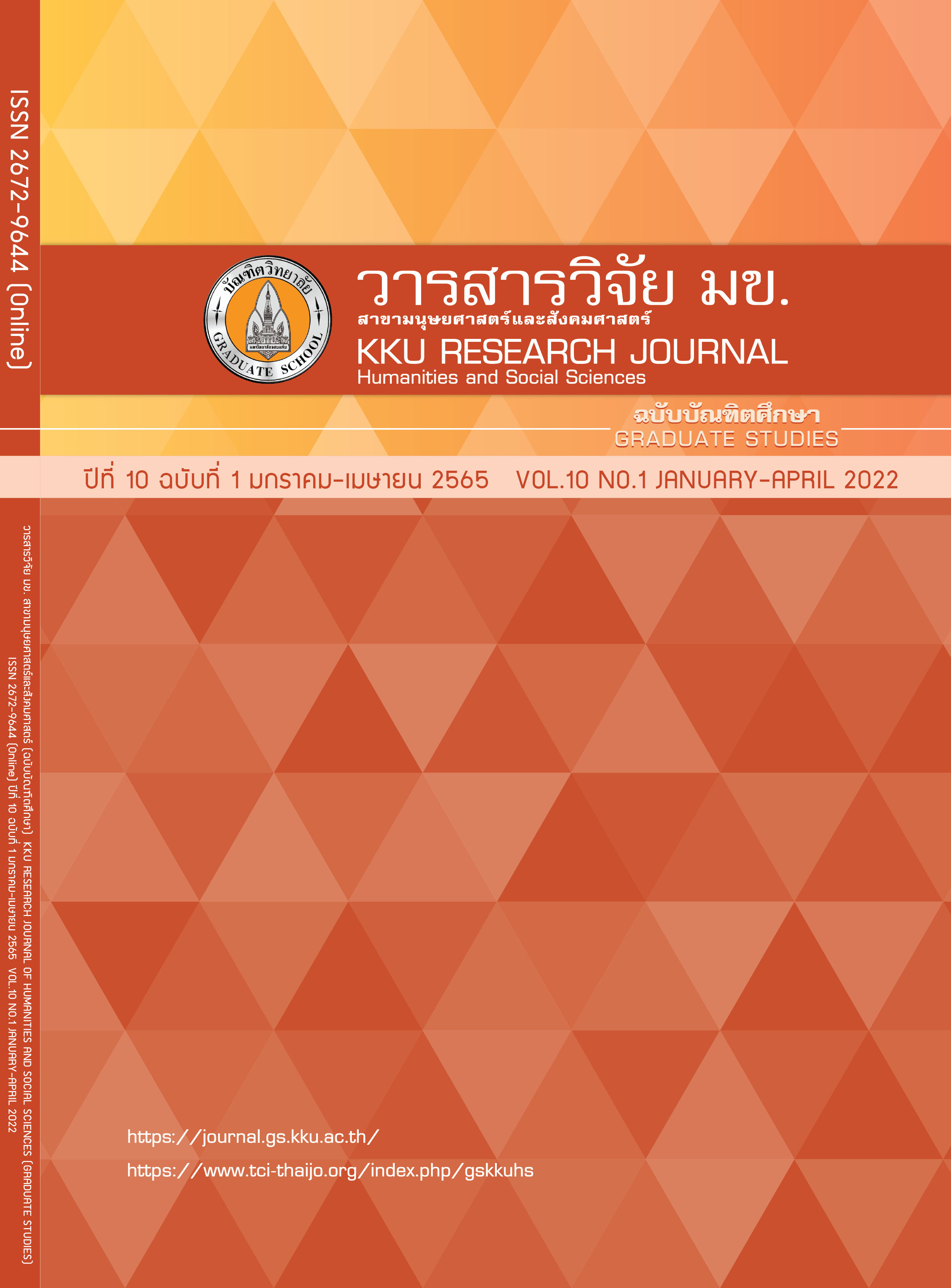Formulating Lesson Subject Matters from Students’ Computational Thinking through Lesson Study: Collaborative Planning Phase
Keywords:
Lesson Subject Matters, Students’ Computational Thinking, Lesson Study: Collaborative Planning PhaseAbstract
The purpose of this study was to investigate the practices of formulating lesson subject matters from students’ computational thinking through lesson study: collaborative planning phase. The target group was lesson study team who were working in the second semester of the academic year 2020 at Bansadao School, Phitsanulok Province. Research Instruments were teacher’s field notes audio-video recorders and the first grade of computing textbook. The data was collected by videorecording, photographs and teacher’s field notes in planning phase that included 10 weeks. The data were analyzed by documentary analysis, content analysis and video analysis with protocol analysis. The data were presented in term of analytical description. The findings showed that the lesson study team practices as follows: 1) analyzing computational real world, symbols, keywords and a practical guide to use technology from each page. 2) seeking students’ problematics with a practical guide to use technology from students’ perspective 3) seeking more ways to solve the problem through students’ perspective 4) classifying the students’ computational thinking and 5) discussing for formulate lesson subject matters and learning objectives through students’ computational thinking. Then the lesson study team designed situations, worksheets and orchestrating discourse which concerned students’ computational thinking.
References
Inprasitha M. One Feature of Adaptive Lesson Study in Thailand: Designing a Learning Unit. Journal of Science and Mathematics Education in Southeast Asia. 2011; 34(1): 47-66.
Ladda S. The Study of Open Approach Instructional Innovation for Learning Area of Social Studies, Religion and Culture. KKU research Journal. 2005; 29(1), 24-34. Thai.
Inprasitha M. Lesson Study and Open Approach to improve Quality of Classroom and “Kyozai kenkyu” in Lesson Study and Open Approach. Handout of Workshop for Educational Personnel. 2017 June4-6; Anubandumrongrachanuson School, Sisaket, Thailand.2017. Thai.
Nambuddee N, Changsri N, Inprasitha M. Teachers’ Interpretation of Mathematics Textbook by Using Lesson Study and Open Approach. KKU Research Journal of Humanities and Social Sciences (Graduate Studies). 2019; 7(2): 23-35. Thai.
Isoda M, Katagiri S. Mathematical Thinking: How to Develop it in the Classroom. Monographs on Lesson Study for Teaching Mathematics and Sciences. 2012; 1-28.
The Institute for the Promotion of Teaching Science and Technology. Thailand Computing Science Curriculum 2017 Textbooks for Elementary School Grade 1. Bangkok, Thailand: Ministry of Education. 2018. Thai.
Sriarun I, Tungkasamit A. The Development of Problem-Solving Skills and Learning Achievement in Economics Strand for Grade 6 Students Using Lesson Study by Open Approach. KKU Research Journal of Humanities and Social Sciences (Graduate Studies). 2016; 4(3): 79-88. Thai.
Brennan K, Resnick M. New Frameworks for Studying and Assessing the Development of Computational Thinking. In Proceedings of the 2012 Annual Meeting of the American Educational Research Association; Vancouver Canada; 2012: 1-25.
Chathong N, Sangaroon K, Inprasitha M, Srichompoo S. Probabilistic Thinking of 11th Grade Students in Classroom using Open Approach. KKU Research Journal of Humanities and Social Sciences (Graduate Studies). 2018; 6(1): 46-56. Thai.
Thipayakansiri A, Srichompoo S, Inprasitha M. Exploring Characteristics of Critical Thinking of Students Grade 10 in Classroom Using Open Approach. KKU Research Journal of Humanities and Social Sciences (Graduate Studies). 2017; 5(1): 32-43. Thai.
XAYYAVONG B, Changsri N, Inprasitha M. Teachers’ Role in Mathematics Classroom at Primary Comprehensive Demonstration School, National University of Laos. KKU Research Journal of Humanities and Social Sciences (Graduate Studies). 2016; 4(1): 1-8. Thai.
Ud-inkaew C, Saengpun J. Using Japanese Blackboard Writing to Enhance Whole – Class
Discussion and Comparison in Mathematics Classroom Taught by Open Approach. Journal of Research Methodology. 2013; 26(1): 91-108.
Wichamon A, Srichompoo S, Inprasitha M. Questioning to Enhance Mathematical Thinking of Students Grade 11 in Classroom Using Open Approach. KKU Research Journal of Humanities and Social Sciences (Graduate Studies). 2017; 5(3): 1-12. Thai.
Pectchara S, Thinwiangthong S. Formative Assessment to Support Students’ Motivation in Mathematics Classroom Using Lesson Study and Open Approach. KKU Research Journal of Humanities and Social Sciences (Graduate Studies). 2016; 4(2): 78-91. Thai.
Downloads
Published
How to Cite
Issue
Section
License

This work is licensed under a Creative Commons Attribution-NonCommercial-NoDerivatives 4.0 International License.




